How does our body control blood sugar so precisely? An international research team led by scientists from the Paul Langerhans Institute Dresden (PLID) of the German Center for Diabetes Research brought us a step closer to the answer.
Deutsches Zentrum fuer Diabetes forschung DZDJul 17 2024 How does our body control blood sugar so precisely? An international research team led by scientists from the Paul Langerhans Institute Dresden of the German Center for Diabetes Research brought us a step closer to the answer. They found a special group of "first responder" cells in the pancreas that are crucial for triggering blood sugar response. Their findings were published in the journal Science Advances.
Not all beta cells are equal Looking at the pancreas, we wondered if all beta cells are actually equally sensitive to sugar. Previous studies suggested some might be more sensitive than others." To understand the work of the pancreas, the Ninov team turned to zebrafish. This small tropical fish has a pancreas that works similarly to a human one. At the same time, it offers a huge advantage.
Hidden hierarchy in the pancreas The team wanted to test if first responders are necessary for the follower cells to respond to glucose. Using transparent fish, the Ninov group took advantage of optogenetics, a modern light-based technology that allows to turn single cells on or off with a beam of light. Turning off the first responder cells lowered the response to the blood sugar of the follower cells.
Blood Sugar Optogenetics Cell Diabetes Fish Glucose In Vivo Insulin Pancreas Research
United Kingdom Latest News, United Kingdom Headlines
Similar News:You can also read news stories similar to this one that we have collected from other news sources.
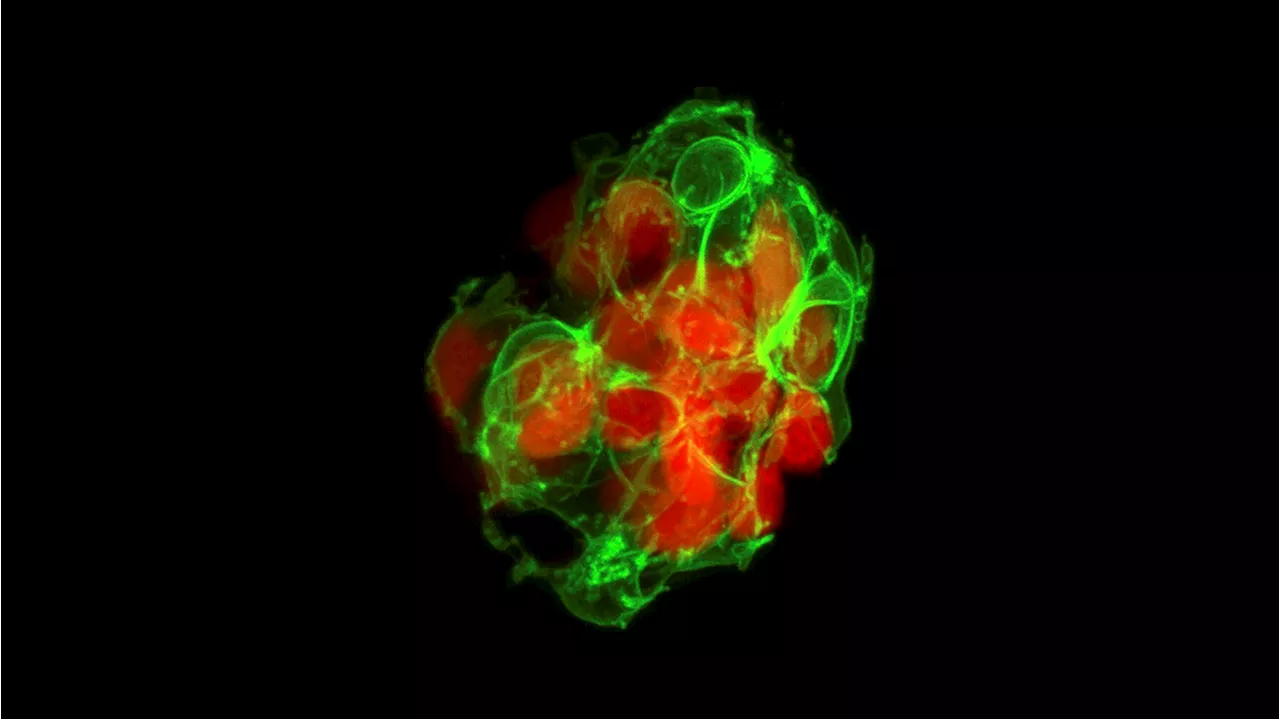 Researchers identify 'first responder' cells in pancreas crucial for blood sugar controlHow does our body control blood sugar so precisely? An international team led by Prof. Nikolay Ninov at the Center for Regenerative Therapies Dresden (CRTD), part of Dresden University of Technology, brought us a step closer to the answer.
Researchers identify 'first responder' cells in pancreas crucial for blood sugar controlHow does our body control blood sugar so precisely? An international team led by Prof. Nikolay Ninov at the Center for Regenerative Therapies Dresden (CRTD), part of Dresden University of Technology, brought us a step closer to the answer.
Read more »
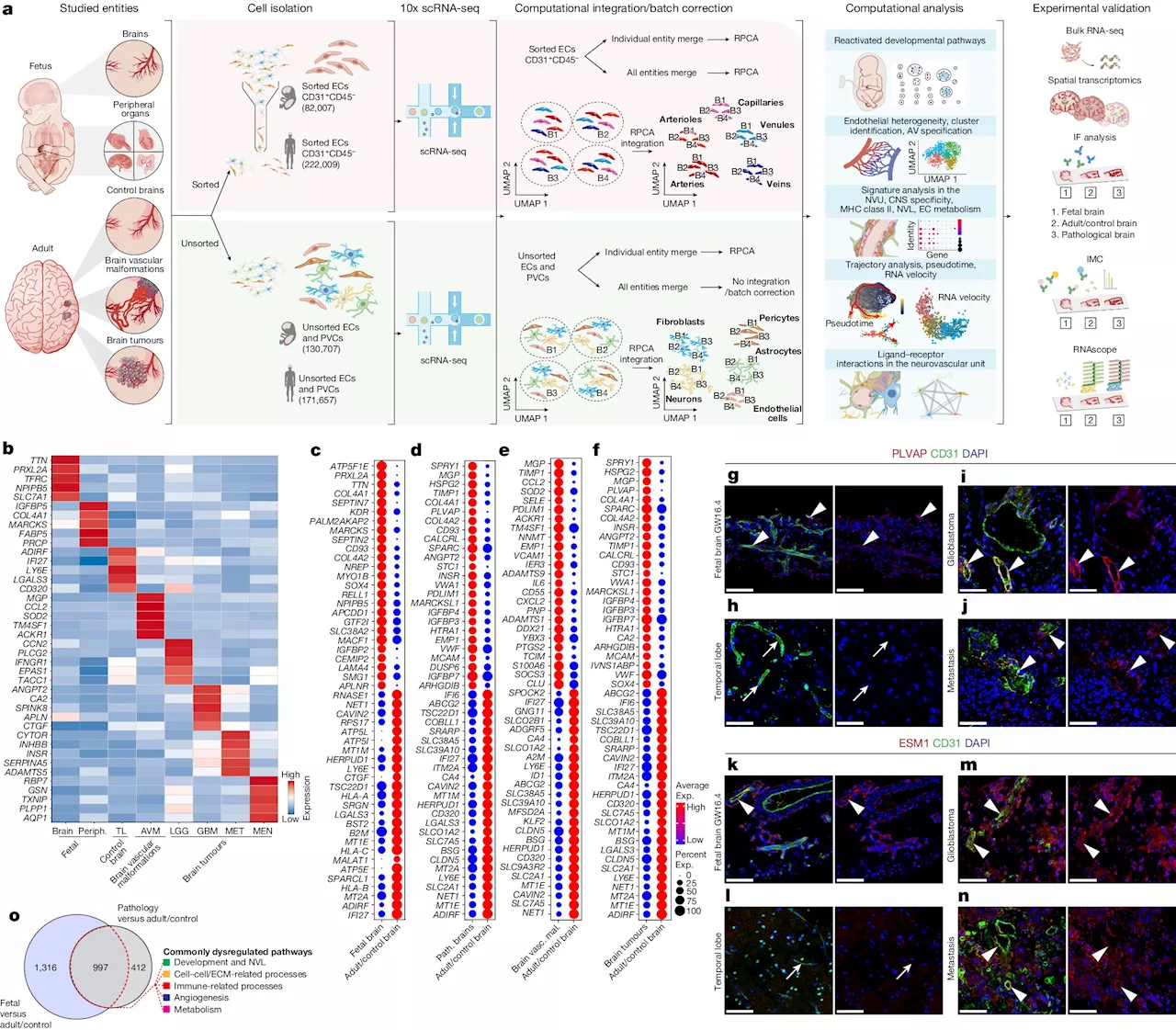 Researchers build first-ever molecular atlas of blood vessel pathways in human brainAn international consortium of researchers led by University Health Network (UHN) in Toronto and University of Zurich have built the first-ever molecular atlas of the human brain vasculature at single-cell resolution, spanning from early development to adulthood and through disease stages such as brain tumors and brain vascular malformations.
Researchers build first-ever molecular atlas of blood vessel pathways in human brainAn international consortium of researchers led by University Health Network (UHN) in Toronto and University of Zurich have built the first-ever molecular atlas of the human brain vasculature at single-cell resolution, spanning from early development to adulthood and through disease stages such as brain tumors and brain vascular malformations.
Read more »
 Immune cells monitor blood platelet maturation in bone marrow, researchers discoverPlatelets play an essential role in wound healing. Underproduction can cause devastating bleeding, while overproduction increases the deadly risk of thromboses. Maintaining a constant level of platelets in the blood (homeostasis) is therefore vitally important. Platelets are continuously formed by megakaryocytes (MKs) and released into the blood.
Immune cells monitor blood platelet maturation in bone marrow, researchers discoverPlatelets play an essential role in wound healing. Underproduction can cause devastating bleeding, while overproduction increases the deadly risk of thromboses. Maintaining a constant level of platelets in the blood (homeostasis) is therefore vitally important. Platelets are continuously formed by megakaryocytes (MKs) and released into the blood.
Read more »
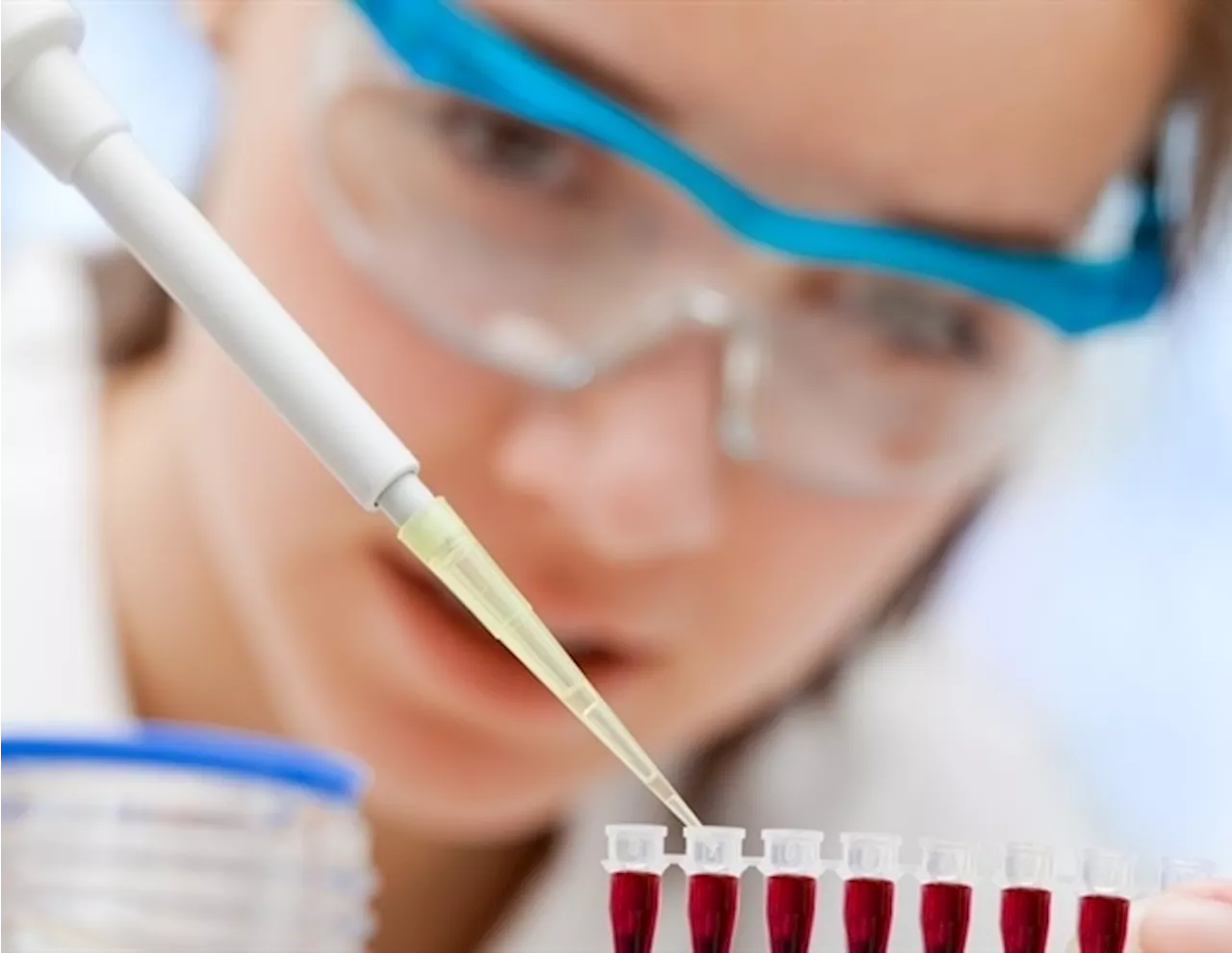 Researchers develop advanced method to analyze liquid biopsies of DNA fragments in the bloodOncologists use biopsy and imaging techniques to diagnose and monitor tumor diseases and assess treatment success.
Researchers develop advanced method to analyze liquid biopsies of DNA fragments in the bloodOncologists use biopsy and imaging techniques to diagnose and monitor tumor diseases and assess treatment success.
Read more »
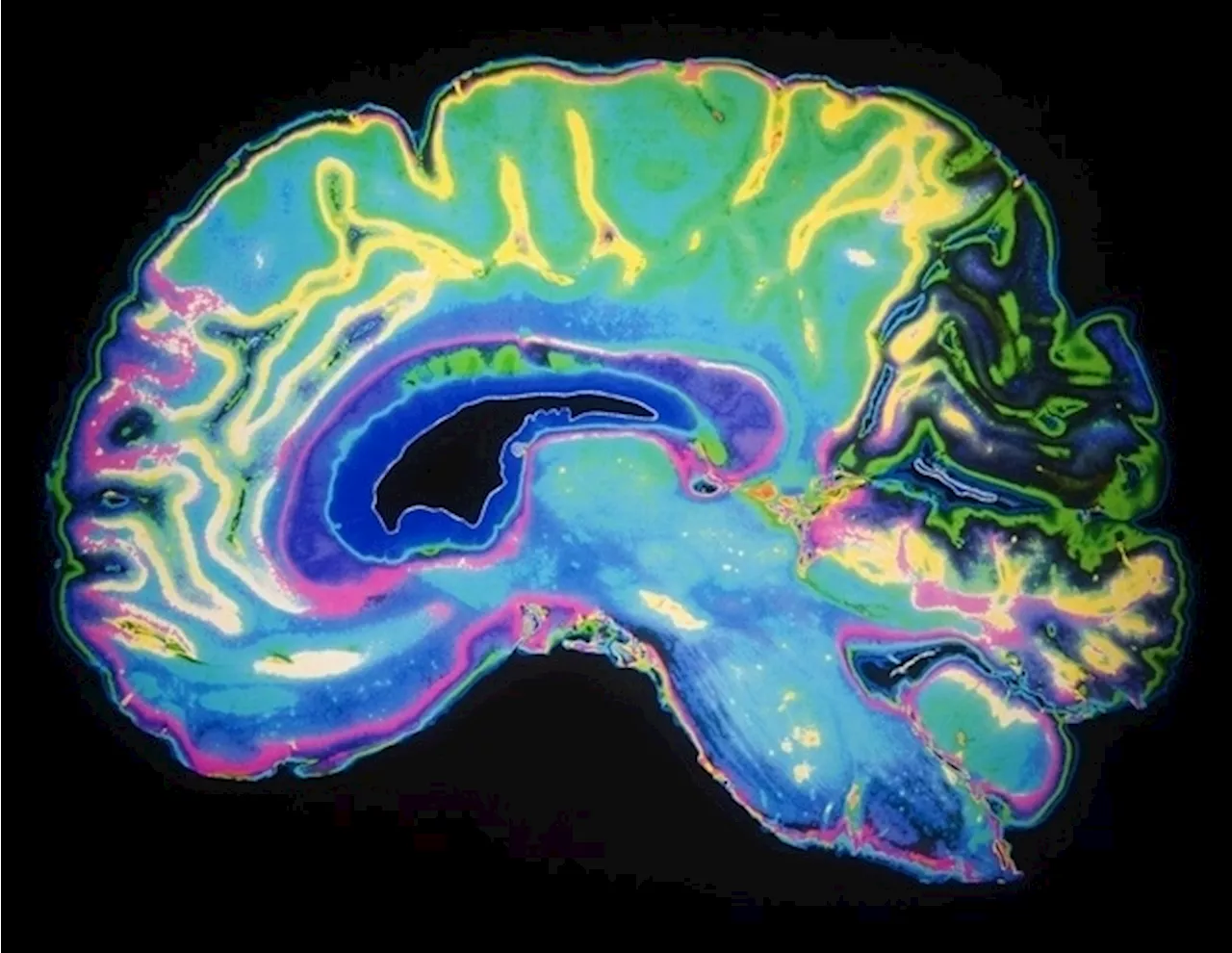 Researchers uncover molecular signatures of blood-brain barrier dysfunction in Alzheimer's diseaseThe blood-brain barrier -; a network of blood vessels and tissues that nurtures and protects the brain from harmful substances circulating in the blood -; is disrupted in Alzheimer's disease.
Researchers uncover molecular signatures of blood-brain barrier dysfunction in Alzheimer's diseaseThe blood-brain barrier -; a network of blood vessels and tissues that nurtures and protects the brain from harmful substances circulating in the blood -; is disrupted in Alzheimer's disease.
Read more »
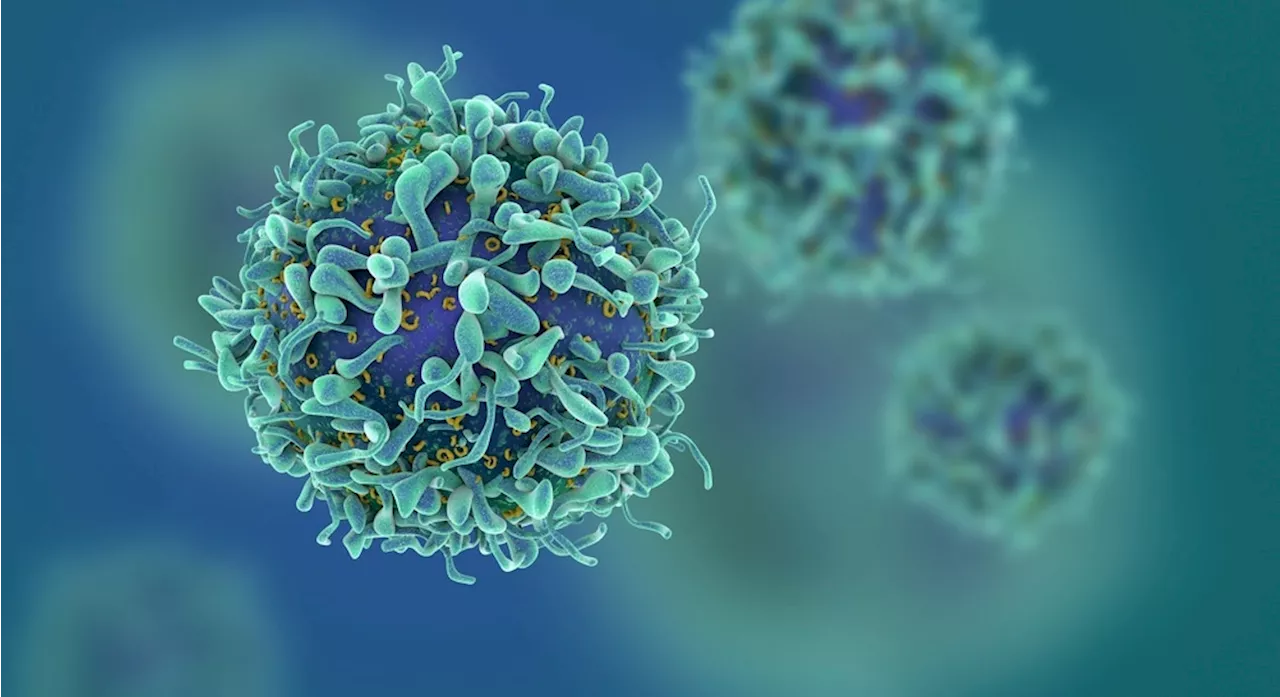 Regulatory T cells exist as large, mobile population that travels through body to repair damaged tissueResearchers investigated populations of regulatory T cells, a type of white blood cell, in various tissues.
Regulatory T cells exist as large, mobile population that travels through body to repair damaged tissueResearchers investigated populations of regulatory T cells, a type of white blood cell, in various tissues.
Read more »
